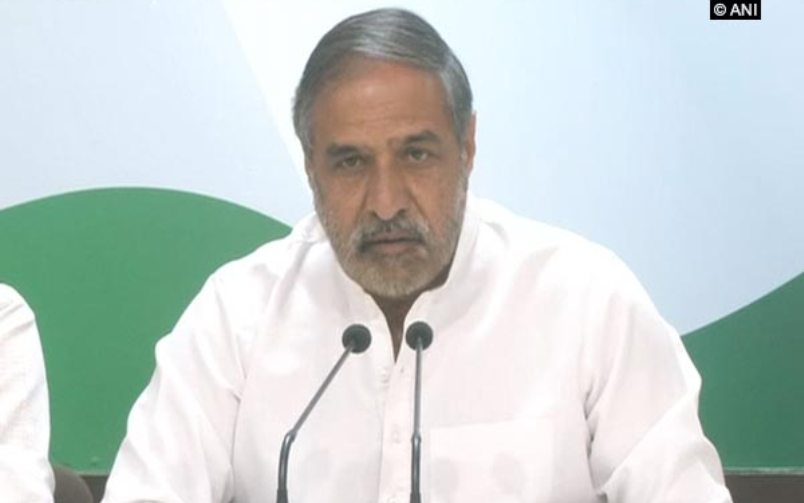New Delhi: Stepping up their attack on the second anniversary of demonetisation, the Congress on Thursday asserted that the exercise which the Prime Minister Narendra Modi-led government undertook in 2016 tarnished the image of India globally.
“Demonetisation tarnished the image of India globally. India was made to look like we were run on black money. But, the Prime Minister is still in denial (mode). He won’t even apologise once,” senior Congress leader Anand Sharma said at a press conference here.
Sharma said that the onus falls directly on Prime Minister Modi for whatever happened in the country following ‘notebandi’. “On this day two years ago, the Prime Minister had taken a wrong and insensitive decision. Whatever happened in the country after that, the onus falls directly on the Prime Minister,” he said.
Observing that the demonetised notes were nothing but the hard-earned money of the citizens of India, Sharma said: “The demonetised currency was people’s money. Importance of cash can be understood when one understands how 90 per cent of our population is working in the unorganised sector. It was them who were hurt as a result of demonetisation. The RBI (Reserve Bank of India) finally came out and said that 99.3 per cent of the demonetised notes have come back to the banks. So, what was the black money Prime Minister Modi was referring to?” he asked.
On August 29, the RBI in its annual report for the year 2017-18 stated that 99.3 per cent of the demonetised Rs 500 and Rs 1,000 notes have returned to the banking system.
According to the report, the total value of Specified Bank Notes (SBNs) in circulation as on November 8, 2016, post verification and reconciliation, was Rs 15,417.93 lakh crore, out of which currency worth Rs 15,310.73 lakh crore was returned.
Underlining that demonetisation failed in addressing the issue of fake currency, Sharma said, “Within two weeks after demonetisation was announced, fake currencies of Rs 2000 were caught from different parts of the country. It is also to be noted that many who were caught with fake currency of Rs 2000 belonged to the Bharatiya Janata Party. What did the citizens get? We lost many lives. Many jobs were lost. SMEs (small and medium enterprises) were hit badly. And now the banks are in a shambles.”
Earlier in the day, former prime minister Manmohan Singh too asserted that the demonetisation exercise which the Prime Minister Narendra Modi-led government undertook in 2016 was ill-fated and ill-thought.
Underlining that the havoc unleashed on the Indian economy and society due to demonetisation was evident to all stratas of people, he said in a statement: “Today marks the second anniversary of the ill-fated and ill-thought demonetisation exercise that the Narendra Modi government undertook in 2016. The havoc that it unleashed on the Indian economy and society is now evident to everyone. Notebandi impacted every single person, regardless of age, gender, religion, occupation or creed.”
The former prime minister further emphasised that the scars and wounds of demonetisation are only getting more visible with time. Singh added that the consequences of ‘notebandi’ are still unraveling.
Singh said that small and medium businesses that are the cornerstone of India’s economy are yet to recover from the demonetisation shock, adding that the note ban has had a direct impact on employment as the economy continues to struggle to create enough new jobs for the youth.
Singh urged the central government to restore certainty and visibility in economic policies.
On November 8, 2016, the Centre had declared Rs 500 and Rs 1,000 notes as non-legal and introduced new Rs 500 and Rs 2,000 notes. Since then, various opposition leaders have highly criticised the Centre’s move, while the members of the Bharatiya Janata Party (BJP) and its allies have backed the decision.
On its second anniversary today, Union Finance Minister Arun Jaitley posted a strong defence of demonetisation saying that the note ban had a huge impact in formalising the economy.
[source_without_link]ANI[/source_without_link]

